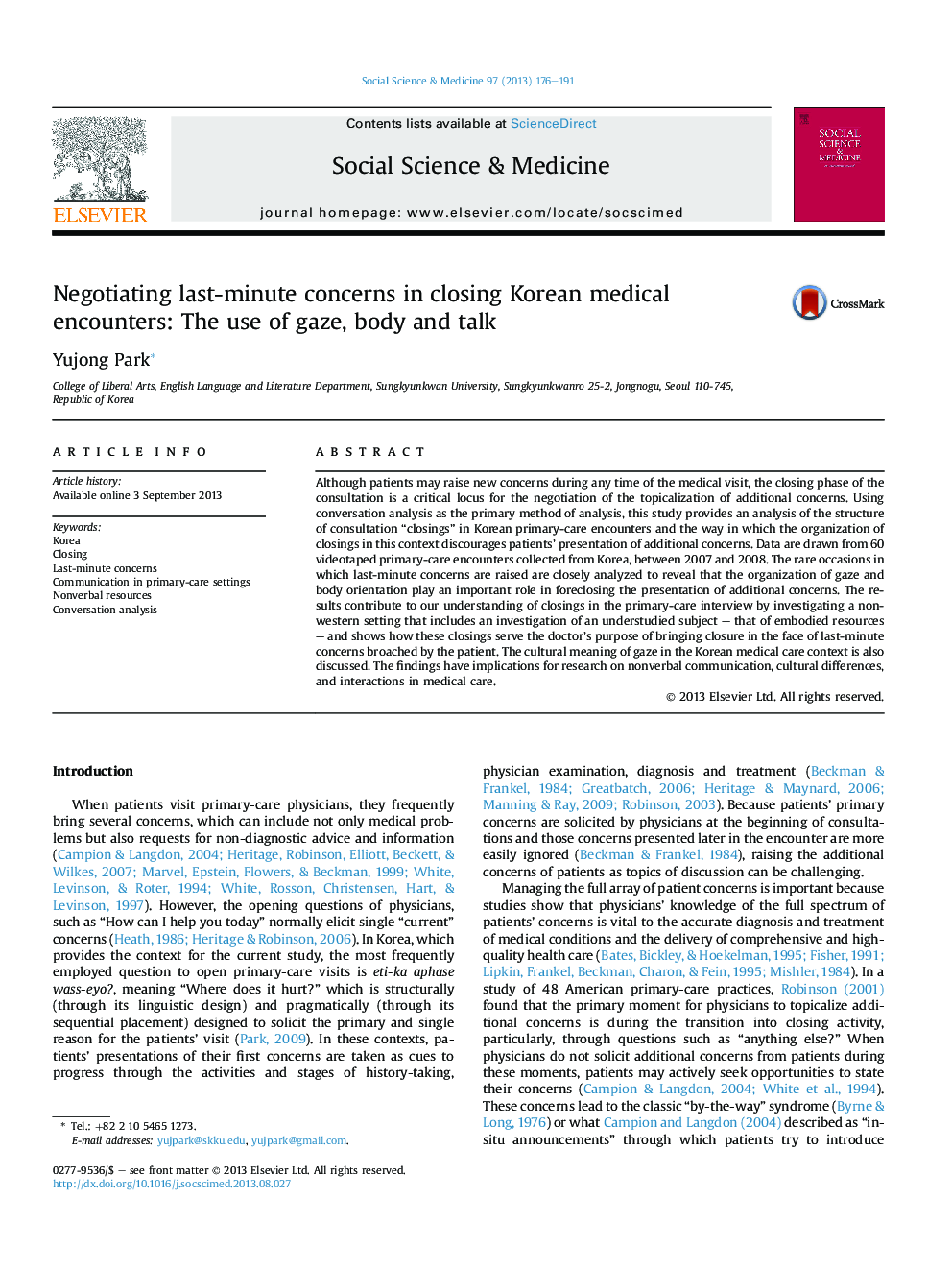| Article ID | Journal | Published Year | Pages | File Type |
|---|---|---|---|---|
| 7336514 | Social Science & Medicine | 2013 | 16 Pages |
Abstract
Although patients may raise new concerns during any time of the medical visit, the closing phase of the consultation is a critical locus for the negotiation of the topicalization of additional concerns. Using conversation analysis as the primary method of analysis, this study provides an analysis of the structure of consultation “closings” in Korean primary-care encounters and the way in which the organization of closings in this context discourages patients' presentation of additional concerns. Data are drawn from 60 videotaped primary-care encounters collected from Korea, between 2007 and 2008. The rare occasions in which last-minute concerns are raised are closely analyzed to reveal that the organization of gaze and body orientation play an important role in foreclosing the presentation of additional concerns. The results contribute to our understanding of closings in the primary-care interview by investigating a non-western setting that includes an investigation of an understudied subject - that of embodied resources - and shows how these closings serve the doctor's purpose of bringing closure in the face of last-minute concerns broached by the patient. The cultural meaning of gaze in the Korean medical care context is also discussed. The findings have implications for research on nonverbal communication, cultural differences, and interactions in medical care.
Keywords
Related Topics
Health Sciences
Medicine and Dentistry
Public Health and Health Policy
Authors
Yujong Park,
